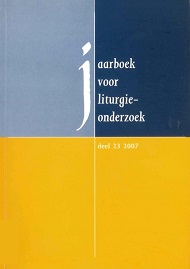Mary Douglas' Purity and Danger revisited
Abstract
The author’s starting point is that Mary Douglas’ Purity and Danger is still an excellent stopping place for all those who, as theologian or religious scholar, wish to become acquainted with the most significant anthropological theories concerning religious (purity) rites and rituality (cultural revolutionism, functionalism, symbolism, cognitive anthropology and structuralism). Nevertheless, the author does not yet wholly agree with Richard Fardon when he claims that in Purity and Danger Douglas, in addition to an elaboration of a structuralist and functionalist approach to impure behaviour and rituals, has also developed a broad evolutionary theory of religion and culture and that much of the complexity of the book is a result of the attempt to reconcile these two arguments, which are based on different starting points. The author holds a more subtle opinion and suggests that more justice is done to the intrinsic value of Purity and Danger by stating that Douglas formulates a clear thesis and that she attempts to elaborate this thesis in a kind of Hegelian model of thesis-antithesis-synthesis throughout the various chapters. In doing so, when possible she unites the differences she comes across during the development of her ideas on a higher level and retains an openness for the introduction of new ideas that, on the basis of new empirical research or new interpretations of existing studies, could more or less nuance or adjust her own theories, thus without necessarily having had the intention of constructing an alternative form of cultural evolutionism.


